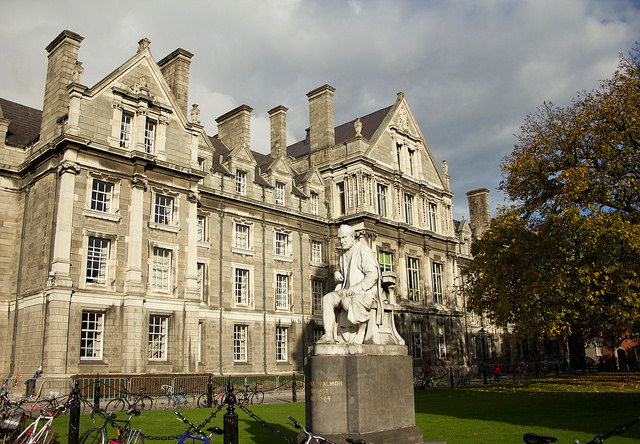
The Udoma subcommittee of the University Philosophical Society (the Phil) was launched this week, with a public speaking competition in the Graduates Memorial Building (GMB), taking place in lieu of the society’s weekly chamber debate. The subcommittee, chaired by Francine Ibeh and comprising Annika Rami and Aeva-May Conway, seeks to provide ethnic minority students with a platform to speak about discrimination and diversity.
The evening was commenced by Ibeh, who spoke first about the eponymous Egbert Udo Udoma, a former Nigerian Supreme Court justice who served as president of the Phil from 1942 to 1943. In a warm and emphatic introduction, she discussed the subcommittee’s aims to create a space for people of colour in the sphere of public speaking, and clarified the intention to “communicate, educate and collaborate” about the experience of ethnic minorities. “The themes highlighted tonight should be at the forefront of what we do, what we say, and how we go about our daily lives.”
Rami then introduced the “esteemed panel of judges”. Six students from ethnic minority backgrounds were to deliver speeches, prose, or poetry surrounding themes of identity and discrimination. The judging panel would be composed of Dr Ebun Joseph, a former teaching fellow at Trinity co-ordinator of the first Black Studies module in Ireland, William Reynolds, a third year medicine student heavily involved in anti-racism campaigns and Su Yadanar, a medicine student and a finalist in the Delta Womens and Gender Minorities Open of 2020.
The first competitor to speak was Sakshi Arya, who announced: “Today is about me and you. I’m going to be talking about me and addressing you.” She was the first of the speakers to express what would become a recurring theme of looking beyond skin and superficial identity: “It distresses me to see that in having to respect me or in having to listen to me you’ve created a fence around you. As someone who’s looking at you from outside that fence, stop being white people, stop treating me like a person of colour … What I hope instead happens is that we become people.”
Following Arya was Victory Luke, who delivered a visceral and evocative poem titled “How to Assimilate”. To assimilate, she alleged, required silencing the voices, the legends and the traditions of one’s ancestral homeland in a process akin to cutting off one’s tongue. The erosion of culture in the struggle to assimilate was a process of disembodiment, and she calmly and steadily refused to undergo this process. To a resounding applause, she declared: “I will keep my hands, my dance, my myths, my legends, my prayers. I can love this land and keep my tongue.”
Goodness Adekanmi recounted in prose the continuous trauma of being black in the US, which she described as indistinguishable from submitting to death. She discussed what she viewed as “new forms of slavery”, such as mass incarceration and disproportionate maternal mortality rates, and admitted that with George Floyd’s murder, “a piece of me had to die with him”. In a rousing change of pace, she rejected traditional platitudes of sympathy, and asked instead that her white counterparts “see me for my glory”. She asked the audience to recognise not just black pain and grief but also “the Black pleasure, the Black warmth, the Black love, the Black joy”.
Next, in a spoken-word poem, Anoushka Panchal explored the discomfort of white people when discussing issues of race. “It is crucial that you look beyond my skin”, she demanded, asking: “What truly makes you quiver? Is it my complexion, or my intellectual resistance?” She returned to the central theme of self acceptance with the proclamation: “My colour and femininity is my strength in every single way.”
The profound impact of the evening was made immediately clear when the final speaker, Salma Waleed, began her speech by tearfully thanking the Phil for finally giving people of colour a voice. In a personal speech dealing with her identity as a Egyptian-born Irish resident, she shared the formative experience of having her nationality questioned by an Irish airport worker, who refused to believe she was Irish based on the colour of her skin and the texture of her hair. This experience was later mirrored by her Egyptian cousins, who chastised her for not understanding Arabic. She professed her love for both countries, Ireland for her childhood and Egypt for her culture, and her simultaneous hatred for the exclusion she had faced from both. “Too Irish to be Egyptian, too Egyptian to be Irish, accepted by neither, rejected by both … I’m neither, I’m both, the answer is … I just don’t know. That’s it”.
The speakers were met with a standing ovation before Joseph concluded the evening with a speech, thanking the organisers and the competitors for a thought-provoking and insightful discussion. Although she described the contest as a close one, she ultimately announced the winner as Wayeed.






